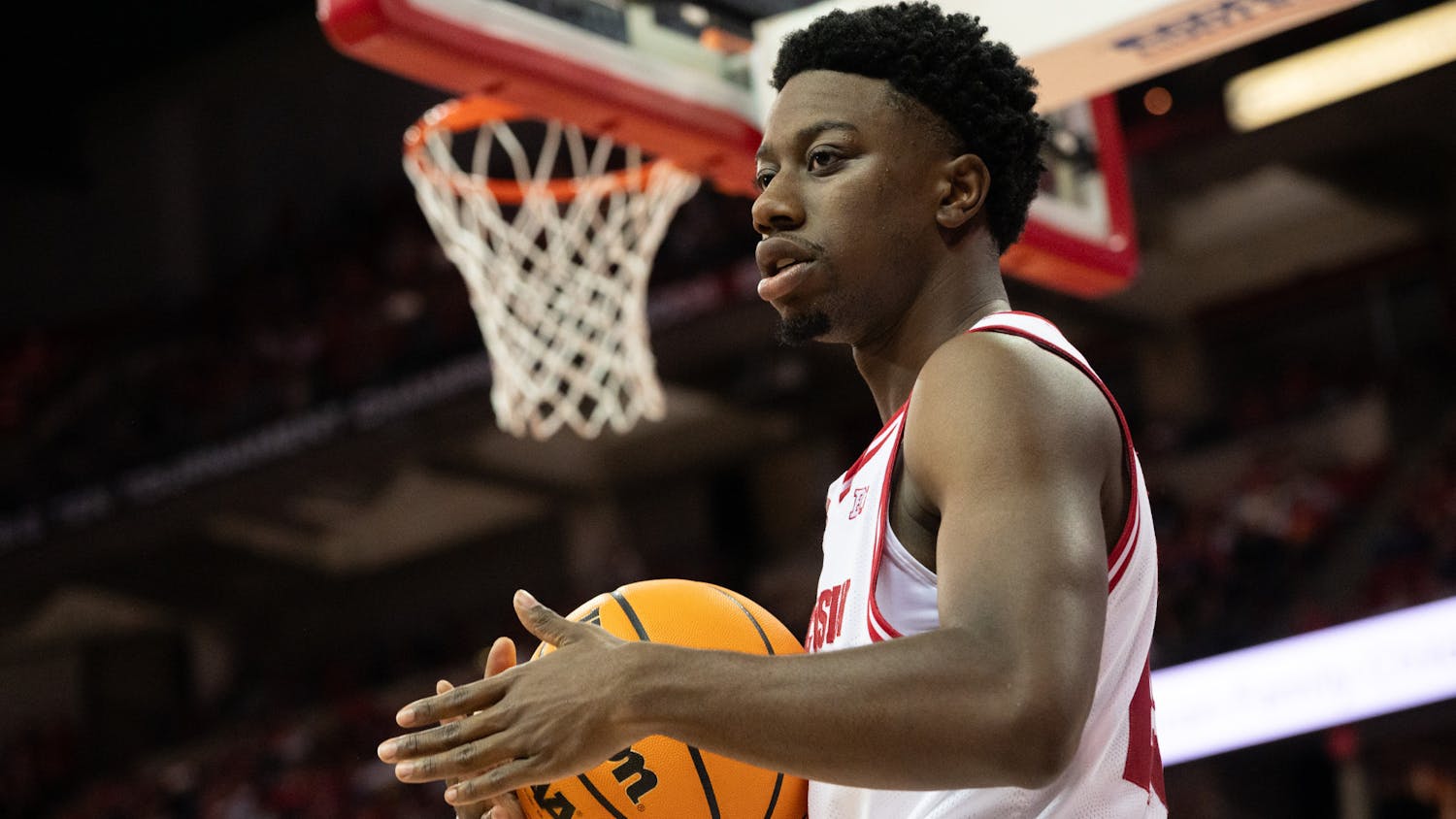The University of Wisconsin-Madison Middle East Studies program (MESP) hosted more than 200 people at its international conference this past weekend to discuss post-Arab-Uprising changes in the Middle East.
Titled “Who is Afraid of Democracy? New Wave of Transformations in the Middle East and North Africa,” the conference featured 17 speakers from universities across the nation and in the Middle East.
The conference started with opening remarks from UW Vice Provost and Dean of the International Division Profe Guido Podestá and MESP Faculty Director Nevine El Nossery, followed by Asef Bayat’s keynote address, “Springtime of Counter-revolution.”
Nahid Siamdoust, a panelist from the University of Texas-Austin, noted the overlap across panelists’ topics on the MENA region, which included presentations on Tunisia, Egypt, Iraq, Jordan and North Africa. Siamdoust’s lecture on Friday, “The End of Iran’s ‘Neither East nor West,’” was part of the “Roots and Ruptures” panel, which discussed the historical dynamics of uprising and authoritarianism in the Middle East in relation to colonial and post-colonial rule and the rise and fall of the Arab Spring.
“Most of the panel, what they're grappling with, is the question of ‘where are we now more than 10 years after the Arab Spring, more than 10 years after Iran’s green uprising, the Gezi protests in Turkey?’” Siamdoust said in an interview with The Daily Cardinal. “All the panelists are grappling in some form with the despair that has followed after these incredibly hopeful social uprisings and the authoritarianism that has been strengthened.”
Scholars at the conference brought up concerns about lack of trust in political institutions and rising authoritarianism and discussed how protesters, artists and civic movements have sought out new goals in the years since the Arab Spring uprisings that spread across the MENA region in the early 2010s. The conference website discussed these goals, explaining that the theme “departs from a major question that relates to influences and differences between present and past, in form, discourse, means, demands, practices and long-term aspirations.”
MESP Director Nevine El Nossery addressed the importance of the conference in her opening marks, saying the Arab revolutions should be considered in a wider scope of contentious movements around the world, “from Tunisia to Hong Kong, from Egypt, Yemen” to “Algeria, Libya, Morocco, Syria and Sudan to Greece, Spain and the Americas.” She also touched on the killing of George Floyd that sparked protests against police brutality and racism in the U.S. and elsewhere.
“The timing of the conference is quite relevant as the whole world is facing unprecedented attacks on personal freedoms through various forms of injustices, whether in the Middle East or the U.S. or elsewhere in the world,” Nossery said.
Saturday’s panels included “Social Movements and Contestation beyond protest” on citizens’ interactions with local, national and international influences, “Aesthetic forms of resistance” covering art’s role in political change and “Politics at the periphery and urban space transformation,” which discussed the relationship between socio-political changes and urbanization.
The conference was initially set to be held last year but was postponed to 2022 due to pandemic-related concerns. Offering attendees an option to attend panels in person or online, the department used a hybrid structure to bring in speakers from international schools, such as Cairo University and the University of Bristol, over Zoom. Speakers in Madison expressed their excitement about meeting in person following two years of predominantly online conferences and lectures.
“It's the first time for I think most of us to be in person and it's so different to be physically together and discuss ideas. It's just a different dimension from being on Zoom the whole time,” Siamdoust said.
UW-Madison sophomore Perrin King’s interests as an international studies major with a Middle East studies certificate brought him to the conference. He echoed Siamdoust’s feelings about attending the conference in person and said he appreciated the opportunity to learn from top scholars firsthand.
“It's just really interesting to listen to a bunch of academics respond and interact with each other's work, because they're all clearly fans of what each other are doing and understand what everyone's doing here,” King said. “You get a variety of different perspectives, and you get to learn a lot in the span of two days, whereas some of the stuff that would take people a full class’s worth to learn.”
Rachel Hale is a senior staff writer who covers state politics and campus events. Before getting involved with The Daily Cardinal, she was a culture editor at Moda Magazine. Follow her on Twitter at @rachelleighhale.






